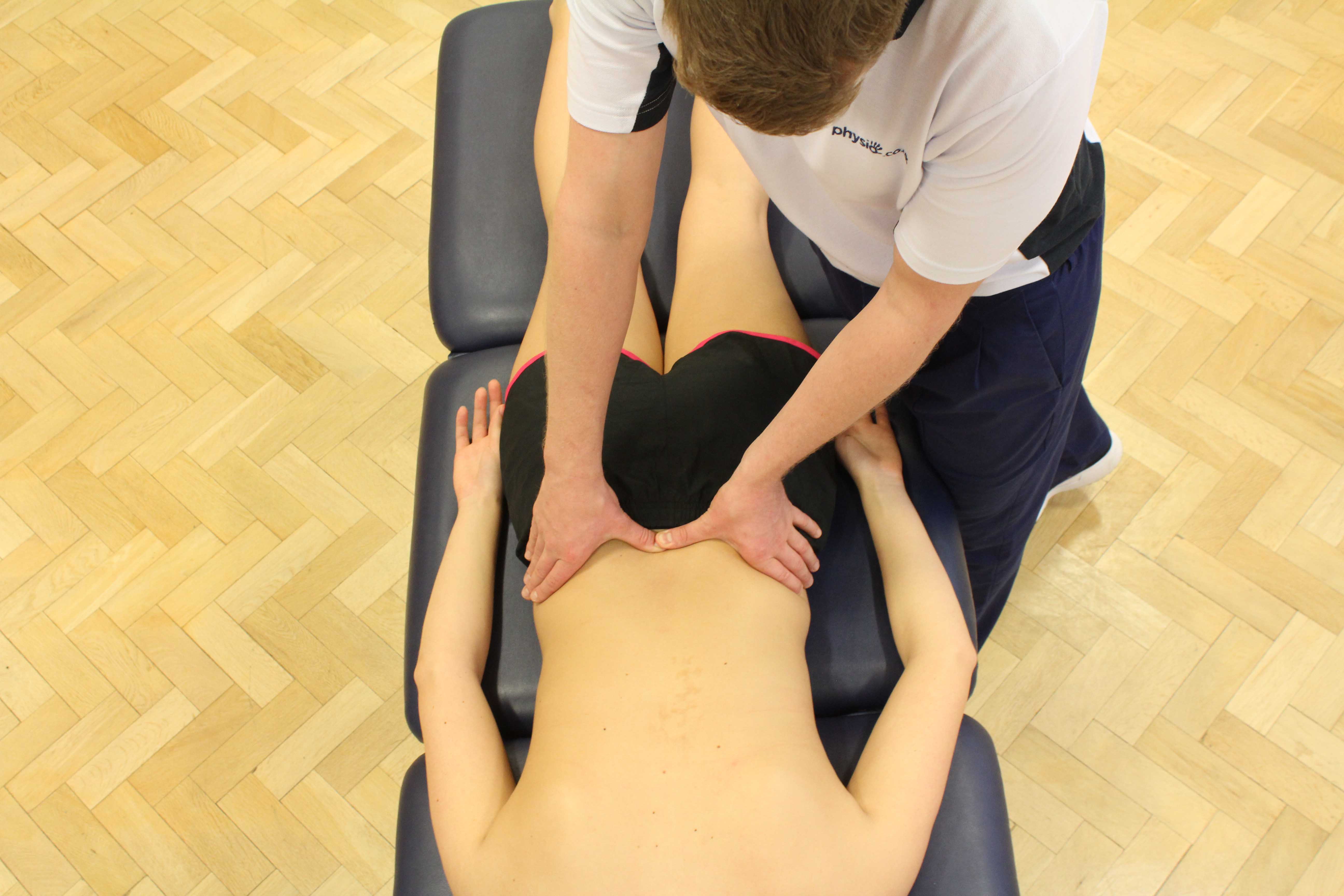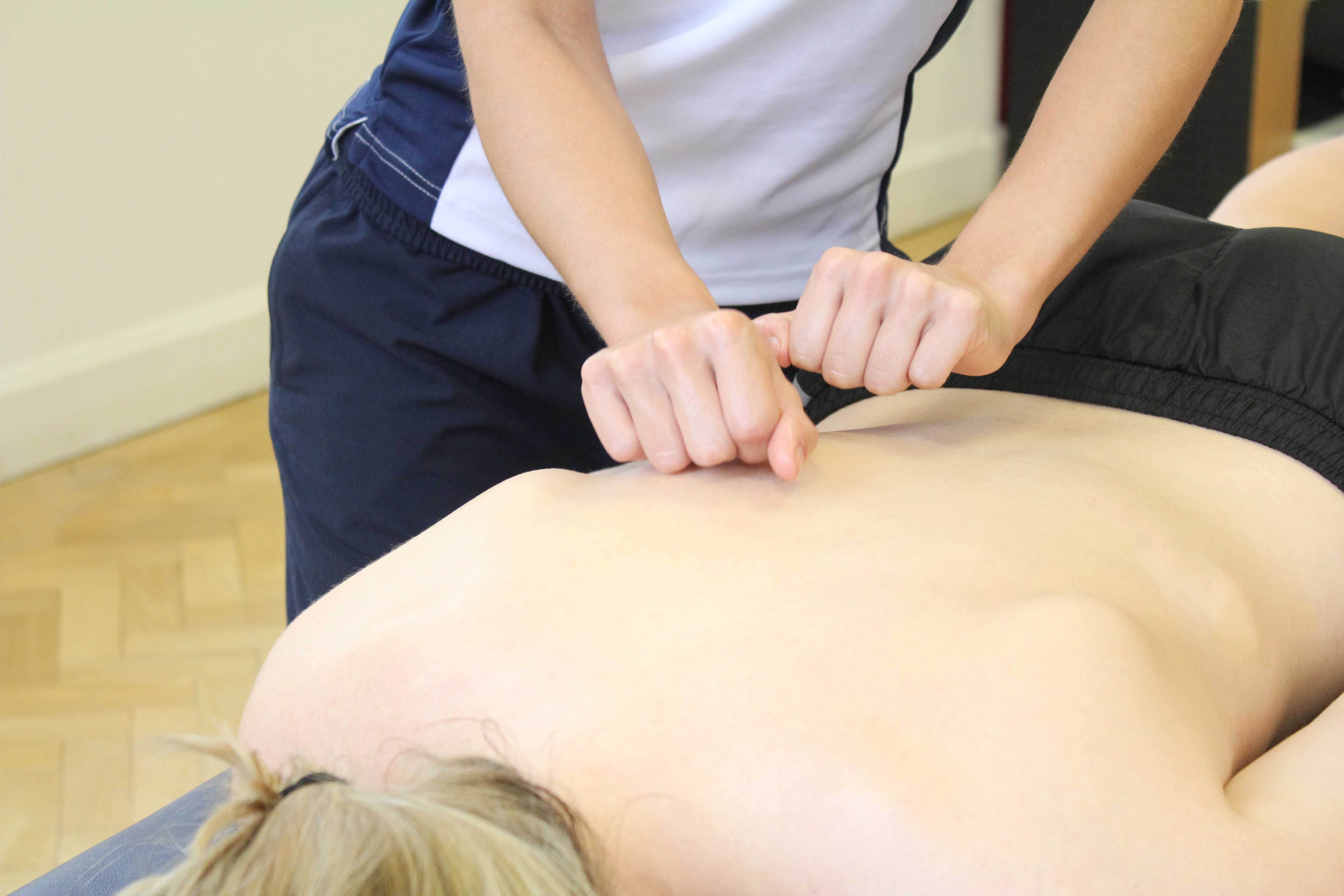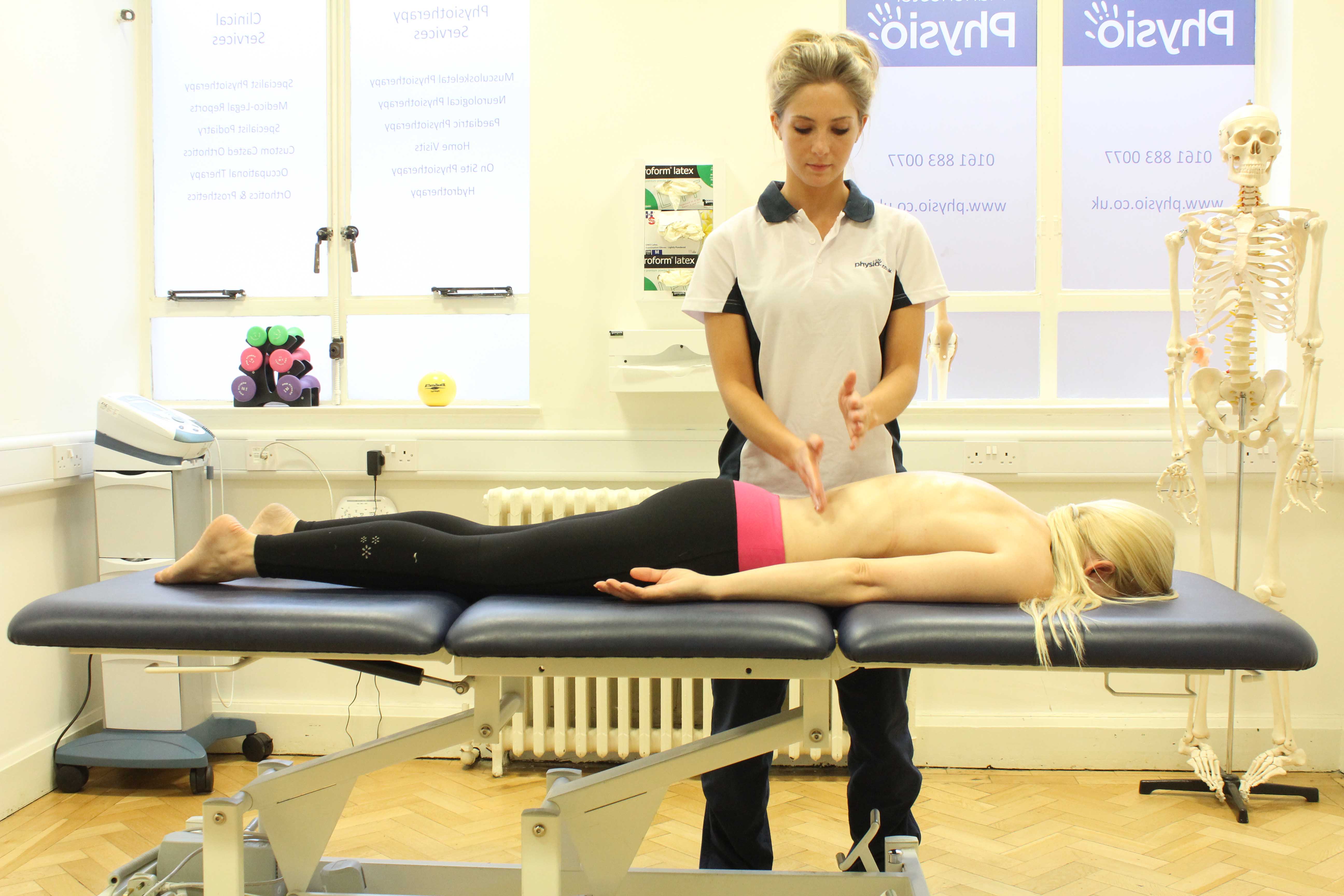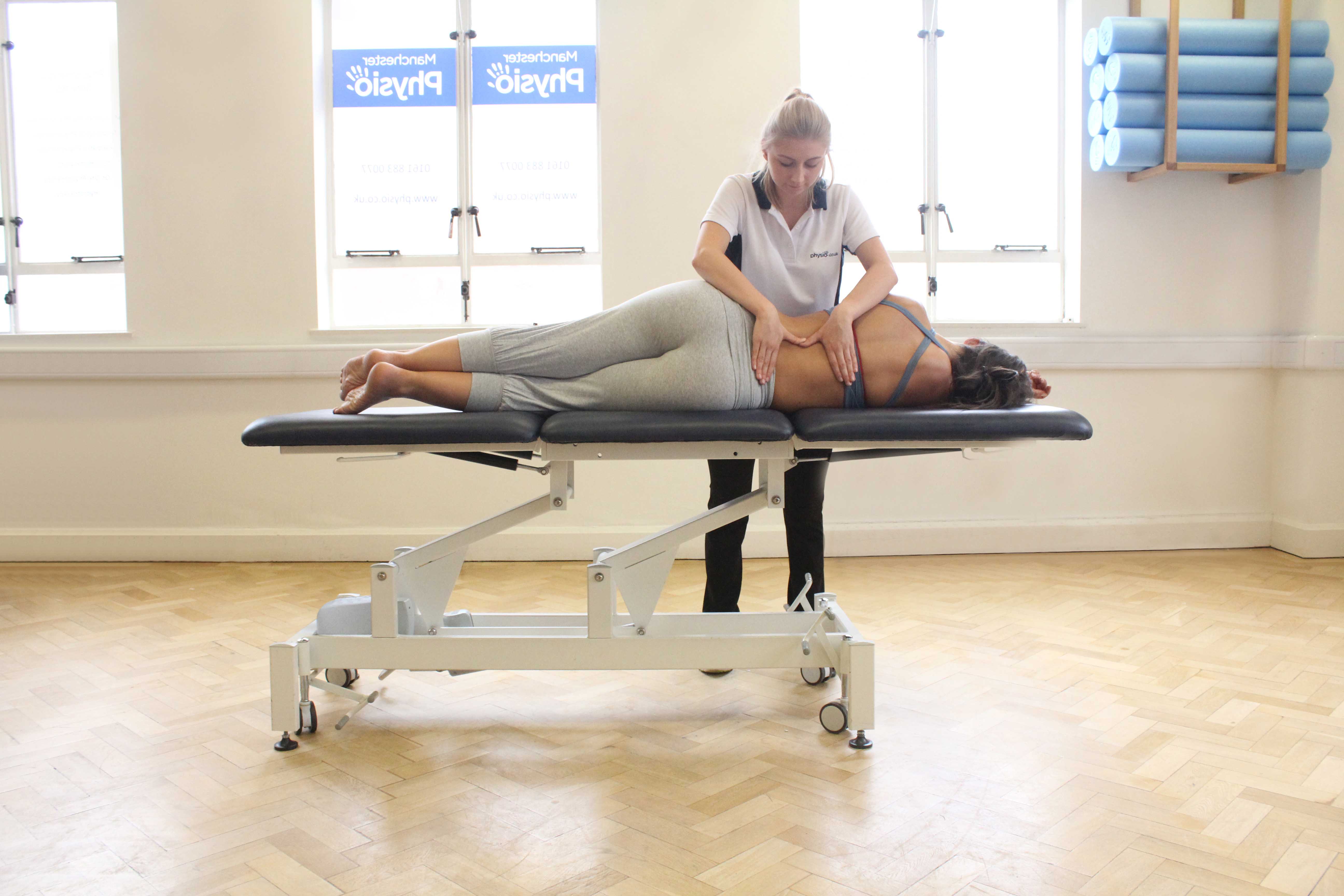What is a lumbar stenosis?
Lumbar stenosis means a narrowing of the canal that contains the spinal cord and nerve roots in the lumbar spine area. Physiotherapy is a very effective treatment for lumbar stenosis.
 Above: Mobilisations of the vertebrea in the lower back by experienced therapist
Above: Mobilisations of the vertebrea in the lower back by experienced therapistWhat can cause a lumbar stenosis?
Lumbar stenosis is most commonly caused by osteoarthritis of the vertebrae and facet joints in the lumbar spine and is therefore most likely in people over the age of sixty. Other reasons for lumbar stenosis include tumour, osteoporosis and a disc herniation.
What are the symptoms of a lumbar stenosis?
The most frequent symptoms of lumbar stenosis are back pain and stiffness in the lumbar spine. If the nerves are more severely irritated, you may experience weakness, pins and needles and numbness in the buttocks, legs and feet. A reduction in bladder and bowel control and loss of balance are rare symptoms of lumbar stenosis. You may also find it difficult to walking long distances and sit or stand for long periods of time without having a rest and leaning forward to stretch your back. Other symptoms include:
 Above: Beating percussion soft tissue massage applied by an experienced therapist
Above: Beating percussion soft tissue massage applied by an experienced therapistWhat should I do if I have a lumbar stenosis?
If you suspect you may have lumbar stenosis, you should go and see your doctor as soon as possible. They can either prescribe pain killers or send you to have certain tests including X-rays and MRI scans to determine an accurate diagnosis. Most cases of lumbar stenosis can be effectively treated with a period of physiotherapy to keep the lower back mobile and strong. In more severe cases, a surgical procedure known as lumbar decompressive surgery is advised to relieve the tension on the spinal cord. It is important to keep your lower back as mobile as possible without causing extra pain.
What shouldn’t I do if I have a lumbar stenosis?
If you have noticed some of the symptoms of lumbar stenosis, you should not ignore these or try and treat the condition yourself. It is important to receive an accurate diagnosis to direct your treatment and recovery. Try to avoid activities involving long periods of sitting or standing and ensure you have regular breaks to give you the opportunity to move about and mobilise your lumbar spine.
 Above: Hacking percussion soft tissue massage conducted by an experienced therapist
Above: Hacking percussion soft tissue massage conducted by an experienced therapistPhysiotherapy for a lumbar stenosis.
Physiotherapy for lumbar stenosis will be mainly exercise based to keep the lower back moving and strong. Massage and heat may be used to reduce any muscle spasm and pain. Hydrotherapy is also an effective way to minimise symptoms of lumbar stenosis and is a helpful pain relief. Electrotherapy techniques including ultrasound and Megapulse can be used to reduce pain and facilitate successful healing. Other treatments include:
Can a lumbar stenosis in the hand have any long-term effects?
Mild lumbar stenosis can be successfully treated with physiotherapy. However, because the condition is degenerative, it is important that you remain active to minimise the reoccurrence of your symptoms. For more severe lumbar stenosis, the condition will be more persistent and your rehabilitation will take longer. The faster you begin a physiotherapy programme, the better your outcome will be.
 Above: Mobilisations of the vertebrea in the lower back by experienced therapist
Above: Mobilisations of the vertebrea in the lower back by experienced therapistTo arrange a physiotherapy appointment call Physio.co.uk on 0330 088 7800 or book online.

 0330 088 7800
0330 088 7800


































